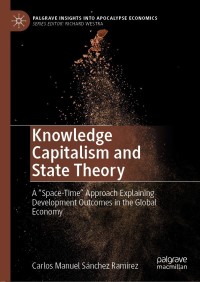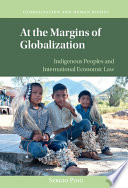Buy Knowledge Capitalism and State Theory: A “Space-Time” Approach Explaining Development Outcomes in the Global Economy PDF ebook by author Carlos Manuel Sánchez Ramírez – published by Palgrave Macmillan in 2021 and save up to 80% compared to the print version of this textbook. With PDF version of this textbook, not only save you money, you can also highlight, add text, underline add post-it notes, bookmarks to pages, instantly search for the major terms or chapter titles, etc.
You can search our site for other versions of the Knowledge Capitalism and State Theory: A “Space-Time” Approach Explaining Development Outcomes in the Global Economy PDF ebook. You can also search for others PDF ebooks from publisher Palgrave Macmillan, as well as from your favorite authors. We have thousands of online textbooks and course materials (mostly in PDF) that you can download immediately after purchase.
Note: e-textBooks do not come with access codes, CDs/DVDs, workbooks, and other supplemental items.
eBook Details:
Full title: Knowledge Capitalism and State Theory: A “Space-Time” Approach Explaining Development Outcomes in the Global Economy
Edition:
Copyright year: 2021
Publisher: Palgrave Macmillan
Author: Carlos Manuel Sánchez Ramírez
ISBN: 9783030714116, 9781000379976
Format: PDF
Description of Knowledge Capitalism and State Theory: A “Space-Time” Approach Explaining Development Outcomes in the Global Economy:
The book builds on an important emergent body of discussion which questions, both empirically and theoretically, the conventional neoclassical doctrine that economies are more efficient if the state withdraws from it. It develops a “space-time” approach to state theory as a way of explaining development outcomes in the global economy as the latter increasingly shifts to what is referred to as “knowledge capitalism”. It examines two global cases – Finland and China – as expressions of two broad models of successful development punctuated most recently by successful responses to the Covid-19 pandemic. It also contrasts both cases with the unsuccessful development of Brazil and Argentina toward “knowledge capitalism” and the ramifications of that for their efforts to combat Covid-19. This book will be of interest to academics in economics, politics and international relations.





